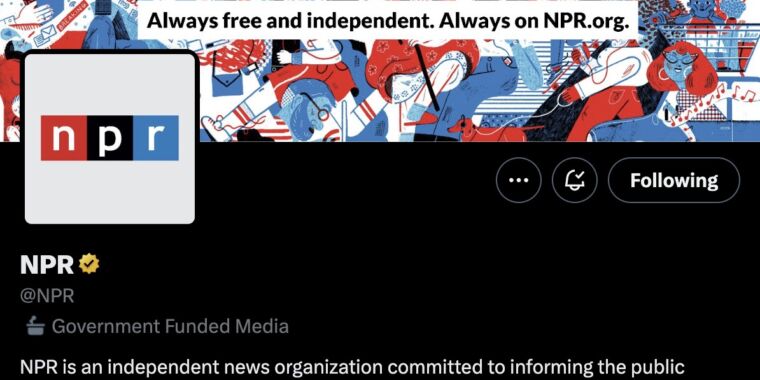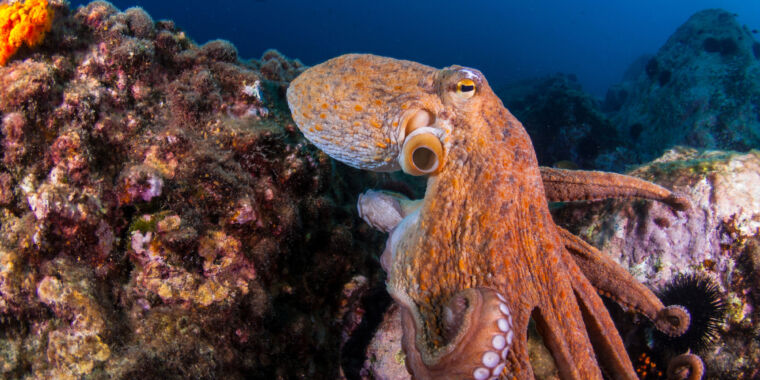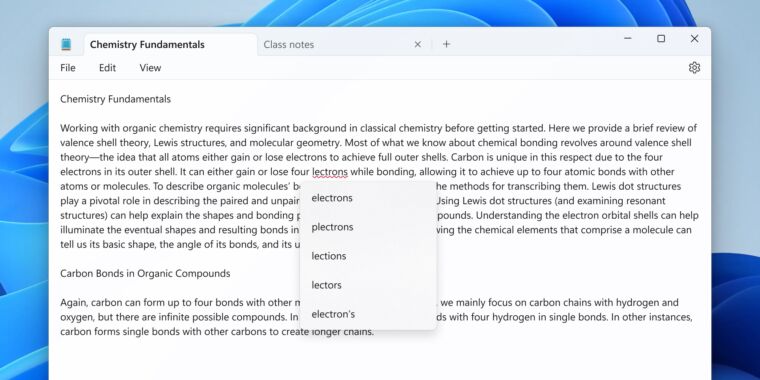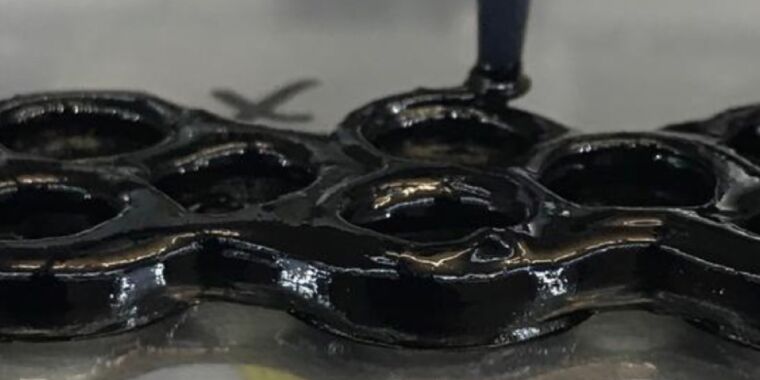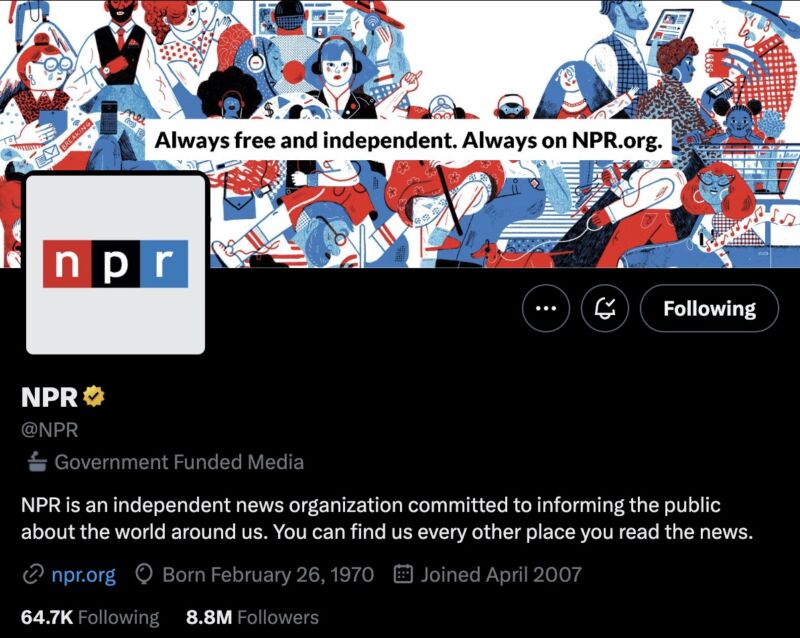
When Elon Musk slapped NPR’s Twitter account with a “US state-affiliated media” label last week, it quickly became clear he didn’t know much about how NPR operates or how it’s funded. After admitting the state-affiliated label was wrong, Musk changed NPR’s tag yesterday to “Government Funded Media”—even though NPR gets less than 1 percent of its annual funding directly from the US government.
The state-affiliated tag took NPR and many others by surprise, in part because it contradicted Twitter’s own policy that cited NPR and the BBC as examples of state-financed media organizations that retain editorial independence. Twitter has historically applied its state-affiliated tag to state-controlled news organizations like Russia’s RT and China’s Xinhua.
Twitter changed its policy to remove the reference to editorial independence at NPR and the BBC, but didn’t scrub the old language from another Twitter help page that still describes both NPR and the BBC as editorially independent. The BBC’s main Twitter account is also newly labeled as “Government Funded Media” after previously having no label.
In emails with NPR reporter Bobby Allyn, Musk asked basic questions that he could have found answers to with a quick Internet search. “He didn’t seem to understand the difference between public media and state-controlled media,” Allyn said Friday in an interview with Mary Louise Kelly on the show All Things Considered.
Allyn continued:
He asked me at one point, quote, “what’s the breakdown of NPR’s annual funding?” And he asked, “who appoints leadership at NPR?” These are questions you can get by Googling, but for some reason he wanted to ask me. And also, let’s take a moment and pause on these questions, Mary Louise, because he made a major policy decision, right? And after doing so, he is just now asking for the basic facts. This is not exactly how most CEOs in America operate. Anyway, I answered his questions. About 1 percent of NPR’s budget is from federal grants, and an independent board appoints NPR’s CEO, who picks leadership.
Musk: Label “might not be accurate”
Musk could have gotten the NPR funding information from this NPR page, which says, “On average, less than 1 percent of NPR’s annual operating budget comes in the form of grants from CPB [Corporation for Public Broadcasting] and federal agencies and departments.”
Corporate sponsorships are the top contributor to NPR funding, accounting for 39 percent of average annual revenue between 2018 and 2022. NPR gets another 31 percent of its funding in programming fees from member organizations. Federal funding indirectly contributes to the latter category because the publicly funded CPB provides annual grants to public radio stations that pay NPR for programming.
Musk’s emails were further detailed in an article by Allyn. After Allyn told Musk that NPR gets only 1 percent of its money from the government, Musk replied, “Well, then we should fix it.”
“The operating principle at new Twitter is simply fair and equal treatment, so if we label non-US accounts as govt, then we should do the same for US, but it sounds like that might not be accurate here,” Musk wrote in another email to Allyn.
NPR’s current government-funded label links to Twitter’s policy, which includes the Twitter’s definition of state-affiliated media accounts but doesn’t provide a definition of government-funded.

